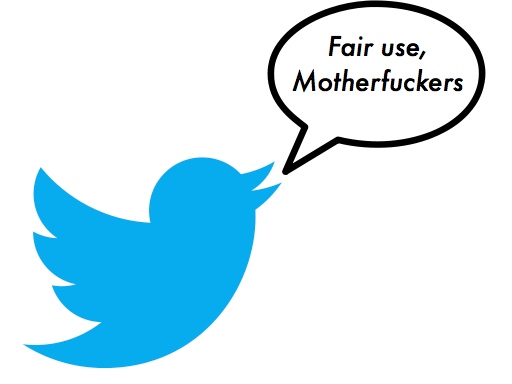or, why I need to accept that The Awl can publish good articles.
A few weeks of ago I found myself telling a teenager “You’re officially old now. That was quick.” after he’d tweeted “I don’t even understand the Internet anymore”, merely because our tweet conversation had been picked up and redistributed by @sodomy_bot.
Srly, in this way I am younger than my temporally challenged friend– I totally get the internet doing that. It loves a potty mouth, often algorithmically. It has loved my potty mouth for well-nigh 20 years. Despite my advanced age and the fact that I’m not a “digital native” I’ve often had an intuitive feel for the net. I get the inversion of privacy, I see institutions being disrupted, I’ve had a great track record in both predicting and participating in this whole rise of the internet thang. It has felt like something of a home for me for most of my adult life. In the 90s I taught a five week course that was a fire hose of protocols, clients, and social conventions called “The Internet From The Ground Up.” We started with what a packet switching network was and why it might help in the event of nuclear war, and got through why you should never type in all caps and what ttfn stood for, and eventually we all even made a website in class. My students, who were the staff and faculty of my college, often looked as if I had beaten them with a bat made of pure information. But I believed the more context you had, the more the next thing the net did would make sense to you.
I still believe in that approach, and I think that’s what mostly kept me young in internet terms. Once you understand that there’s an architectural politics baked into technology design, it’s easy to look at the protocols and interfaces and say: I can see what will happen to the people that use this, and therefore the world they inhabit. It takes only a little understanding of human nature, largely unchanged in its dealings with sodomy since it began, to understand why humans would write a sodomy bot.
So it’s with some pause that I too must admit sometimes I don’t geddit, and that this is where I am internet old. Back in the day of the paleonet, publications as I knew them had a distinct personality. They had a voice you could count on, a topic area you could model in your head, and a tendency to respond to the world in predictable ways. They were like people, and some were even like friends. Wrapped up in the designation of some corporate entity was something I could treat like a distant human, a penpal I would never meet. This quality was, of course, deliberate, and the result of a careful set of professional techniques. Editorial meetings, house style books, longtime guardians worked hard to create the gestaltic imaginary friends that lived under publishing brands.
You can blame the speed of the net, the disintermediation of gatekeepers, but I think it’s at least as much the loss of the artifact of print that decohered things under the urls that should have been, damn it, my friends and enemies online. This brings me to my moment: a moment lost in transcendental reading, lifted off the page and into the world the author envisioned. I love it when that happens. The article was a beautiful, to the point of lyrical, piece on James Dempsey’s discovery of a lost work of E.E. Cummings, one of my favorite poets. I read through the whole thing off a link on twitter before looking at the URL and realizing it was The God Damned Awl.
I really don’t have a good impression of The Awl. I have read some truly turgid pieces of shit on its pages, and don’t get me started on Hairpin– Now Stupider for Girls! I even have good reasons, in my own mind, for not liking The Awl. It always felt like railing against the man when in this case the man had set up your trust fund. It was self indulgent, it was snarky for its own sake– and in a bad way. Every time I’d looked at it (which wasn’t often) or that one obnoxious friend had sent me a link to and Awl piece I’d been dissapointed. But here they had gone and betrayed me, by publishing one of the best articles I’ve read in ages. Did I have to love the Awl now? Did I have to visit it as a regular reader just to find out if they ever publish anything that wonderful again? I had no way of containing this new Awl in my head, or what I should do about it.
In the 90s I found myself explaining to companies that because of search engines there was no such thing as a reliable front door to their site, and that they would have to live with it. For them, everything was disjointed if they could not control the way their users would experience their site. Ad firms and old corporate entities balked at this lack of control. “Get used to it,” I told them, “this is the new world.” Well, to myself today I say, get used to it, Quinn, this is the new world. Publications are no longer gestalt monoliths. They’re messy, they are off message at the edges that butt up against search engines and timelines. They are more like poltergeists than old friends. Even in many cases, my old friends, moved online.
I read a wonderful debunking of Second Life by friend and sort-of occasional boss at ITP Clay Shirky years ago, and while I told him I loved the piece itself, I spent 90% of my time berating him for publishing it with Vallywag, at the time the most despised rumor rag in my little world of techies. Valleywag was truly awful, so why had Clay given it this legitimacy? Didn’t he understand that now everything else on the site looked more respectable? What The Awl made me realize that he hadn’t made Valleywag more respectable, and that my image of The Awl and Valleywag had never been real in the first place. Clay hadn’t made Valleywag any more believable because he wasn’t there when Valleywag was being stupid. It existed independent of any particular post, and yet because of that, not at all. Not the way magazines and newspapers had existed before, not with that singular voice, that one relatable attitude. There was nothing substantial for me to pass judgement on.
So The Awl can produce literary nonfiction art. My granny walker cognitive approach to this realization is what has made me, finally after kicking back hard for years, old. Getting to the party late. On the Internet important political movements come from /b/tards, E.E. Cummings comes from the Awl, and moral values are codified by lolcats, who in their own turn take their language from IRC script kiddies. At some point or another the Internet makes us all old.





